Menu Covers: First Impressions Count In Defining Your Customer’s Dining Experience
A menu cover is your first opportunity to connect with your customer. In this article, we’ll guide you through creating
A menu cover is your first opportunity to connect with your customer. In this article, we’ll guide you through creating
Maintaining the highest standards of food quality, taste, and safety is crucial in the dynamic world of hospitality and culinary
Champagne is often associated with celebrations and special occasions, and for good reason.
When it comes to crafting the perfect cup of coffee, every detail matters. From the quality of the beans to
If the goal is to become a chef, our complete guide is the ultimate direction to achieving success in the culinary domain. We address every essential aspect surrounding education, practical experience, refining culinary skills, uniforms and establishing connections within the professional network.
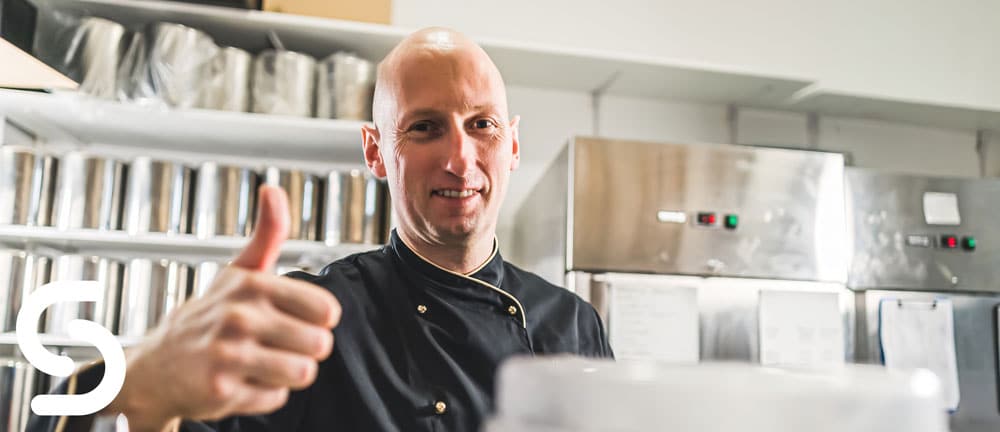
Whether at the initial stages of your journey or aiming to enhance your expertise, this guide offers a complete storage of knowledge to help you.
In the UK, the qualifications and pathways to becoming a chef vary depending on the establishment and career goals. Here are the general steps and qualifications you might consider:
While not mandatory, many aspiring chefs in the UK choose to attend culinary schools or colleges to gain formal education in culinary arts. Look for programs offering diplomas, certificates, or professional cooking or culinary arts degrees.
Chef apprenticeships are a popular route to becoming a chef in the UK. A commis chef or kitchen assistant apprenticeship involves on-the-job training and classroom instruction at different levels.
Practical work experience is crucial for becoming a skilled chef. You can start as a commis chef or kitchen assistant and progress to higher positions as you gain experience and skills.
National Vocational Qualifications (NVQs) and Scottish Vocational Qualifications (SVQs) are widely recognised qualifications in the UK’s hospitality and catering industry. These qualifications assess your practical skills and knowledge and are available at different levels.
Participating in competitions can help you showcase your skills and gain recognition within the industry. Winning or placing in competitions can boost your career prospects. The Inspiring Culinary Generations (ICG) Cookery Competition is a great example.
Obtaining food safety certifications, such as the Food Hygiene Certificate or the Level 2 Food Safety and Hygiene for Catering, is essential for working in a professional kitchen. These certifications demonstrate your knowledge of safe food handling practices.
As you gain experience, you might specialise in specific cuisines, techniques, or cooking areas, such as pastry chef or baker.
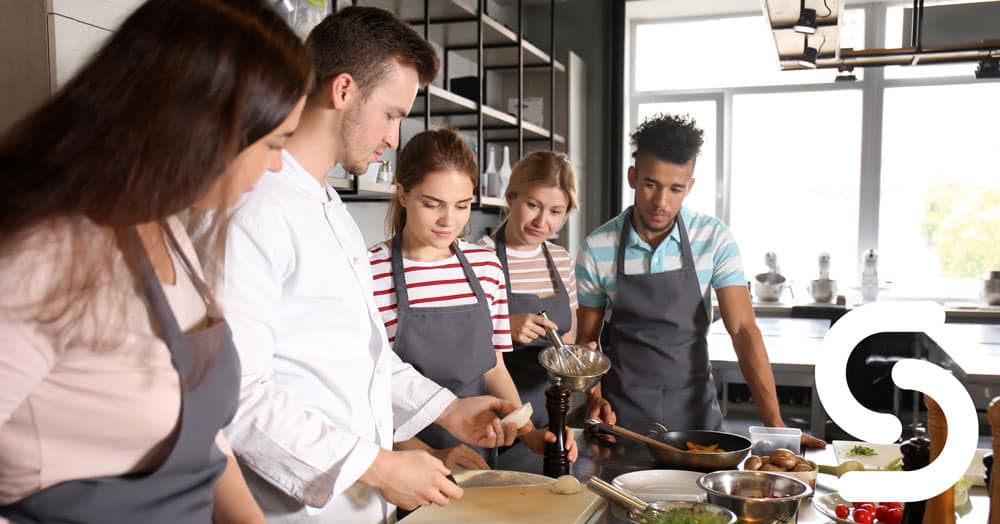
In the UK, there are several prestigious culinary schools and programs that you can consider if you’re looking to become a chef:
| Universtry or College | The Courses Available | ||||||
| Le Cordon Bleu London | This internationally renowned culinary school offers a variety of programs, including Diplôme de Cuisine and Diplôme de Pâtisserie, which provide comprehensive training in culinary and pastry arts. | ||||||
| Westminster Kingsway College | This college offers a range of culinary courses, including professional chef diplomas and apprenticeships. Their culinary programs are known for their practical training and industry connections. | ||||||
| University Birmingham College | They offer a variety of culinary programs, including professional cookery and hospitality courses. | ||||||
| Edinburgh School of Food & Wine | This school is known for its professional chef diploma program, which covers various aspects of cooking, food preparation, and kitchen management. | ||||||
| Ashburton Cookery School | This school offers a variety of short and intensive courses that cover different cuisines and techniques, suitable for beginners and those looking to enhance their skills. | ||||||
| City of Glasgow College | This college offers culinary arts programs, including practical training in their state-of-the-art kitchens and real-world industry experience. |
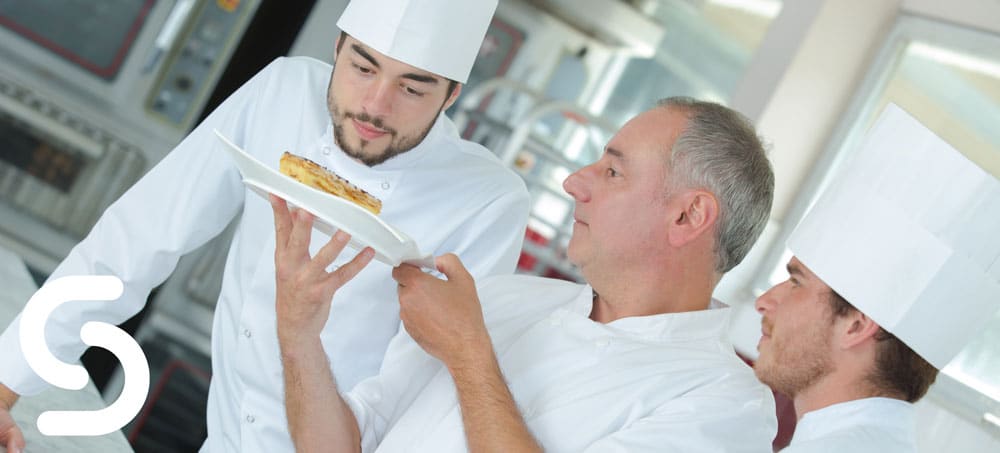
You can get a chef job without any experience. It might sound like a challenge, but it’s doable. Restaurants or hotels often have roles for starters, like kitchen assistants or prep cooks. These jobs help you learn the ropes, like how kitchens run, how to handle food and the super important hygiene stuff.
If you aim to fast-track things and get a solid base, consider attending culinary school or a training program. As we said above, these setups give you structured learning and hands-on practice, which is gold when you’re diving into a pro kitchen.
And don’t forget about networking. Looking up food events or workshops that could introduce you to chefs and other pros who might give you some direction or even toss you an opportunity.
You might not start as the head chef or a chef de cuisine immediately, but starting small, like a kitchen assistant or prep cook, helps you learn essential skills and show you’re all in. As you soak up knowledge and improve, you’ll climb the ladder and gain more experience.
If you want to be a chef, the time it takes depends on experience, education and passion. Here is a general timeline overview:
If you decide to attend a formal culinary school, programs can range from a few months to two years or more. Shorter programs might provide essential skills, while more extended programs offer comprehensive training and may include internships or externships.
Apprenticeships can last from one to four years, depending on the program’s structure and the skills you aim to acquire. During an internship, you’ll combine on-the-job training with classroom instruction.
Many aspiring chefs start their careers in entry-level positions, such as kitchen assistants, line cooks, or prep cooks. You can learn and progress through these roles with determination and hard work over a few years.
Becoming a skilled and proficient chef can take several years of practice and experience. Gaining expertise in various cooking techniques, understanding different cuisines, and learning to manage kitchen operations requires consistent effort.
As you gain experience and skills, you can progress to higher positions within the kitchen hierarchy. Moving from a line cook to a sous chef and eventually to a head chef or executive chef can take several years of dedicated work.
The culinary field constantly evolves, and successful chefs continue to learn and adapt throughout their careers. This could involve attending workshops, taking advanced courses, and staying updated on industry trends.
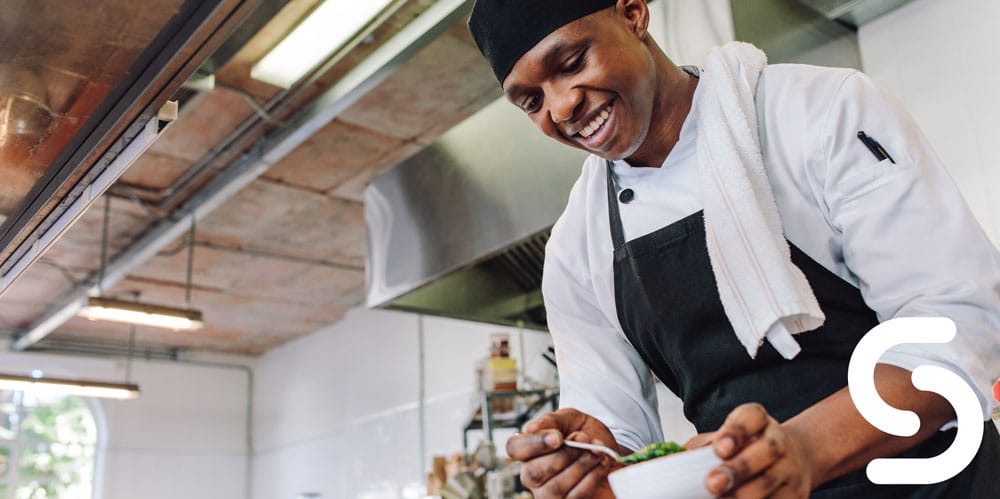
The salary of chefs in the UK varies based on location, experience, establishment and role. Here’s a general overview of the salary range for chefs in the UK:
| Positions | Salary | ||||||
| Entry-level positions | Entry-level positions like kitchen assistants, commis chefs, or junior cooks can earn an average annual salary of around £15,000 to £20,000 or even higher in some cases. | ||||||
| Line Cooks and CDPs | As chefs gain experience and move to roles like line cooks or Chef de Partie (CDP), their salaries typically range from £20,000 to £30,000 or more annually, depending on the establishment and location. | ||||||
| Sous Chefs | Sous chefs, who hold a more senior role and often assist the head chef, can earn an average salary of £25,000 to £40,000 or more, depending on experience and location. | ||||||
| Head Chefs | Head chefs, who are responsible for the overall operations of the kitchen, can earn a salary ranging from £30,000 to £60,000 or more per year, depending on the size and prestige of the establishment. | ||||||
| Executive Chefs | Executive chefs who oversee multiple kitchens or an entire culinary operation can earn salaries of £50,000 to £100,000 or higher, particularly in upscale hotels, resorts, and fine-dining restaurants. Location |
Salaries can vary significantly based on the site of the establishment. Chefs working in London and other major cities may earn higher salaries than those in smaller towns or rural areas.
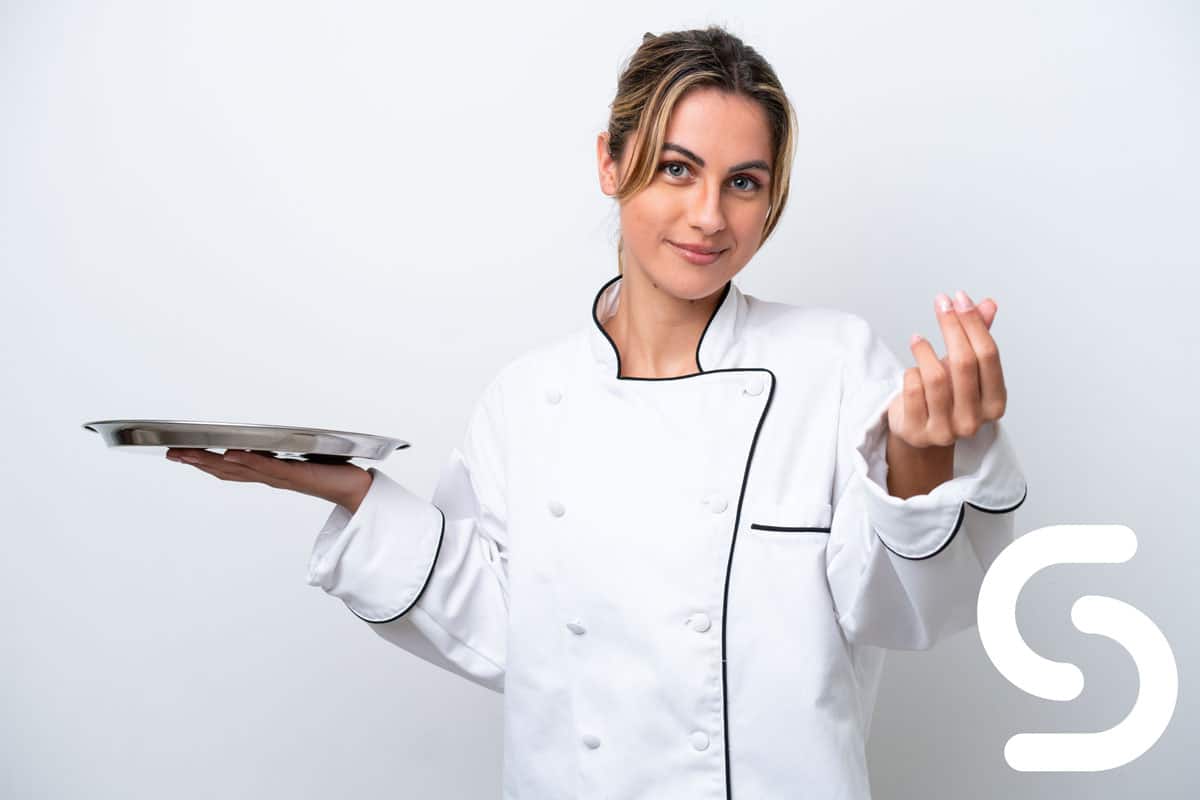
Of course, there’s a demand in the UK. The need for chefs varies depending on region, type of restaurant and industry changes.
The UK boasts a diverse food scene, offering everything from casual dining to upscale restaurants. This variety creates opportunities for chefs with different skill levels and expertise to find suitable positions. The demand for chefs is robust in major cities like London, where the culinary landscape is competitive and diverse.
Here’s a general overview of the skills needed to succeed as a chef:
The role of a chef demands diverse culinary techniques, encompassing an array of cooking methods and an in-depth understanding of various culinary traditions. This proficiency extends to the finesse of knife work, adeptness in executing procedures like grilling and sautéing, and a complete grasp of the interplay of flavours and ingredients.
The culinary domain transforms chefs into artistic creators, crafting culinary compositions tantalising the senses. A successful chef seamlessly combines ingredients to forge innovative dishes, fostering an ever-evolving menu that intrigues palates and offers a captivating dining journey.
Within the dynamic environment of a professional kitchen, the art of time management is vital. A successful chef produces a symphony of culinary processes, ensuring the precise preparation and timely presentation of dishes amidst the ebbs and flows of a busy kitchen.
The hallmark of culinary excellence rests upon attention to detail. A successful chef strictly sticks to precise measurements, curates plate presentations, and organises cooking durations with the utmost precision to deliver dishes of the highest calibre consistently.
A kitchen’s efficient functioning hinges upon a seasoned chef’s organisational skills. Organisational skills empower the management of ingredients, tools, and operational procedures, resulting in the seamless management of culinary operations, even during peak hours.
Advancing in the culinary hierarchy often forces chefs into leadership roles, such as sous or lead chefs. The flourishing chef adeptly leads kitchen brigades, fostering a balanced synergy while collaborating with front-of-house personnel, ensuring a coordinated dining experience.
Effective communication is the key to a kitchen’s kinetic environment. An accomplished chef communicates clearly with the kitchen and staff during high-stakes service periods.
Culinary is subject to endless transformation, characterised by evolving trends, ingredients, and emerging culinary models. A great chef must embrace adaptability, the ever-changing landscape, and novel elements in their culinary arsenal.
The kitchen can be fierce, particularly during peak dining periods. Preserving composure under pressure differentiates a good chef; with finesse, they can expertly navigate challenging circumstances.
Ensuring the health and well-being of patrons rests at the core of culinary ethics. A respected chef is committed to stringent food safety regulations, handling practices, and hygiene standards.
As chefs ascend the ranks, understanding culinary economics becomes important. Those occupying leadership roles exert a keen understanding of kitchen administration, cost containment, and strategic menu pricing, which is pivotal for fostering financial viability within the establishment.
The culinary landscape is intrinsically tied to delivering excellent guest experiences. An accomplished chef commits to crafting exceptional culinary narratives that resonate with patrons, delivering moments of delight to all.
The culinary profession necessitates enduring hours of standing, lifting heavy implements, and working in demanding environments. A successful chef’s stamina and robust physical constitution enable them to navigate these challenges with unyielding determination.
The culinary universe constantly evolves, where novel techniques, ingredients, and perspectives emerge. A chef cultivates dedication to learning, engaging with emerging trends and cutting-edge approaches to continually refine their craft.
The ideal essence of a chef is the fire of passion they have. A successful chef displays enthusiasm for the culinary arts, infusing each dish with a sense of dedication to producing creations they are proud of.
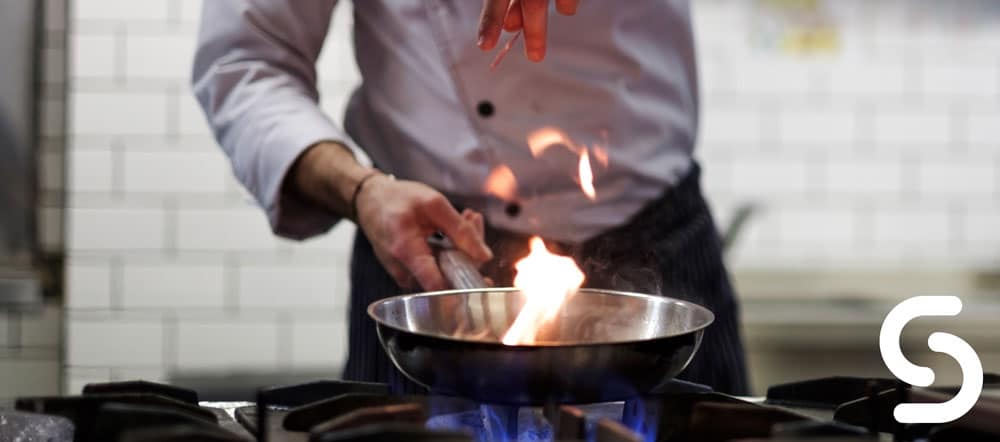
It can be tremendous and gratifying if you want to get into cooking, but there are some things to consider.
If you genuinely love cooking and creating delicious dishes, a chef career can provide a platform to express your creativity and share your artistry with others.
The culinary industry offers many opportunities, from working in fine-dining restaurants to catering events, running your food truck, or even becoming a celebrity chef – well, you never know, right?
Seeing your creations delight customers and receiving positive feedback can be incredibly satisfying and motivating.
The culinary world is ever-evolving, and there’s always something new to learn. Whether trying new techniques, experimenting with ingredients, or exploring global cuisines, you’ll constantly be challenged to expand your knowledge and skills.
Working in a kitchen can be physically and mentally demanding. Long hours, standing for extended periods, and high-pressure situations during busy service times are common challenges.
In culinary, feedback on your creations can sometimes be harsh, and dealing with criticism is a part of the learning process.
Starting as a chef may require working in entry-level positions to gain experience and work your way up. This can involve repetitive tasks and relatively lower pay initially.
To work as a chef, wearing appropriate clothing is essential for safety and professional appearance. Here’s a list of clothing items typically required for chefs in the UK:
| Type of Clothing | Description | ||||||
| Chef’s Jacket | A traditional double-breasted White Jacket helps maintain hygiene, and its thick fabric protects from heat and spills. Some kitchens may have colour-coded jackets to denote different roles or ranks. | ||||||
| Chef’s Trousers | Chefs commonly wear baggy or “harem” style trousers. They allow for comfort, ease of movement, and ventilation. | ||||||
| Chef’s Hat | The classic tall, pleated Chef’s Hat, known as a toque, helps keep hair away from food and maintains a professional appearance. | ||||||
| Apron | A heavy-duty apron protects clothing from spills, stains, and hot liquids. Bib-style aprons are commonly used in professional kitchens. | ||||||
| Non-Slip Shoes | Wearing comfortable and slip-resistant shoes with closed toes is essential to maintain safety while working in the kitchen. | ||||||
| Neckerchief | Some chefs wear a neckerchief for tradition and to absorb sweat and keep hygiene at its best. | ||||||
| Kitchen Towels | Towels help wipe hands, clean surfaces and handle hot pans. | ||||||
| Gloves | Disposable gloves play a crucial role in maintaining hygiene and food safety. When handling raw foods, gloves are used to prevent cross-contamination and the spread of harmful bacteria. They also protect the hands from exposure to chemicals and other potentially harmful substances. | ||||||
| Safety Gear | Safety gear like heat-resistant aprons or cut-resistant gloves may be necessary depending on the tasks. | ||||||
| Optional Extras | Some chefs wear arm sleeves to protect against burns, and others use rubber bands to keep shirt sleeves in place and prevent them from touching food. |
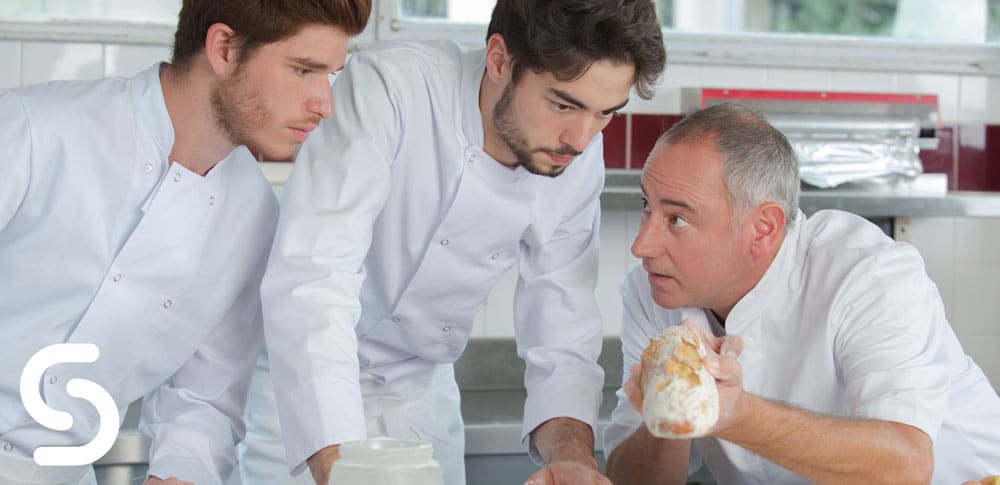
As a chef, the equipment required may vary depending on your speciality, preferred style, and tasks. Yet, here’s a list of essential equipment that most chefs find helpful in a professional kitchen:
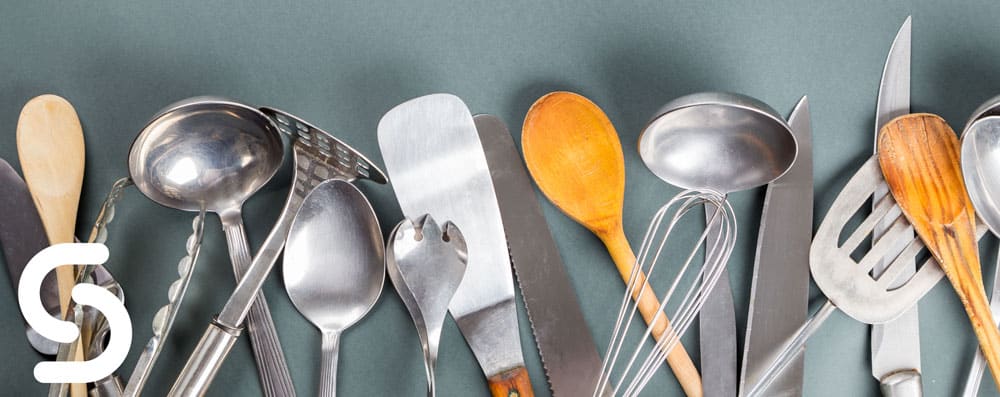
Becoming a chef is a complex but rewarding endeavour that extends well beyond honing cooking skills. It entails a mix of foundational knowledge, the refinement of skills, the spark of creativity, and seamless teamwork. Every creation presents an opportunity to showcase your artistic flair and provide an immersive encounter rather than a mere meal.
We hope this guide will help you decide to pursue a career in cooking and provide guidance on how to achieve it.



A Company Registered in England & Wales Company Registration Number: GB05069286 VAT Registration Number: GB867112521 Smart Hospitality Supplies is a trading division of The Smart Marketing & Media Group Limited
